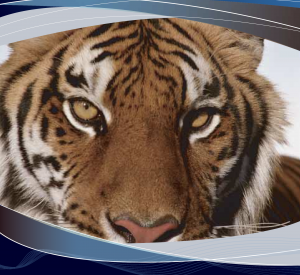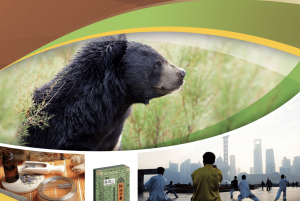By James A. Swan, Ph.D. Originally published on www.jamesswan.com.
All across North America, millions of men and women are making plans for hunting this fall. The right gear, places, scouting, etc. are all important, but there is one other area of preparation that should also be part of your planning – people who are opposed to hunting..
Anti-hunters are nothing new, but since the killing of Cecil the Lion, one now finds a flock of Internet articles claiming that hunters are crazy, sadistic, and psychotic and people who seem to be hunting for hunters to attack electronically.
If a hunter posts a picture on Facebook of themselves with an animal they’ve killed, such as the bear hunter in Canada who killed a bear with a spear
http://fox17online.com/2016/08/16/video-of-man-killing-bear-with-gopro-equipped-spear-sparks-outrage/ or a 12 year-old girl who posted pictures of herself with a dead zebra, giraffe and antelope http://thefederalist.com/2016/08/18/this-12-year-old-girl-went-hunting-and-now-social- justice-warriors-want-to-murder-her/, they are now the potential target for a swarm of angry, messages.
Suppose you bag something that makes you feel proud. Do you post pictures on Facebook, so people other than your friends can see them? If so, then you may be in their sights.
Even though studies show that 79% of Americans support ethical hunting, http://www.humansandnature.org/hunting-mark-damian-duda-andrea-criscione hunters increasing find that people are using the Internet to challenge and attack hunters and hunting.
Are you ready to be a target? If there are real threats, then you should report them to the FBI, who has a special unit for dealing with cyberbullying. https://www.fbi.gov/tips The Department of Justice also works on catching people who hack into computers, etc. https://www.justice.gov/criminal-ccips/reporting-computer-internet-related-or-intellectual- property-crime Do not be a helpless victim.
In martial arts training, I was always taught that when challenged its generally good to retreat but prepared to protect yourself, and then if necessary know how to win quickly and effectively, and you accomplish this by being self-confident. If you cannot just quietly retreat it helps to have a good way to respond to challenges.
There are lots of facts that support that hunters are conservationists and hunting is a safe sport, but opponents of hunting generally use arguments that are emotional rather than based in facts and science. If they challenge by talking about how scientists say that animals are going extinct, you can respond that in the last century no species of huntable wildlife have gone extinct and most game species — ducks and geese, deer, elk, wild pigs, wild turkeys, pheasants, etc. — have significantly increased in numbers. This may not make your opponent retreat immediately, but it will help.
There are other challenges that are not as easily dealt with, such as when hunters are called mentally ill, crazy, sadists, psychopaths, sociopaths and criminals. These kinds of terms and concepts dominate what you find on the Internet if you do a Google Search for “The psychology of hunting.”
Anyone can have an opinion, but the opponents of hunting are trying to dominate all media with negative takes on hunting, and some of these opponents say they are psychologists.
Recognize that psychology is a relatively new science, and there are many different kinds of psychologists – there are, for example, over 50 different divisions in the American Psychological Association, and not all of them are based on objective scientific inquiry. Some are primarily philosophy, and in this case, recall that the great philosopher Wittgenstein said that “philosophy is often the problem that is supposed to solve.” And, while the scientific method is supposed to help researchers find the truth, researchers themselves are not necessarily unbiased.
So, if you want to engage people who call hunters crazy, or simply feel more confident about yourself as a hunter, this article is meant to give you some ammunition about the psychology of hunting that is supported by research and experts. I came to write about this because I’m a retired college professor of ecology and psychology (three universities and two psychology grad schools) and one of the founders of the division of environmental and population psychology in the American Psychological Association, which is very scientific.
After hearing and reading some of the charges about hunters being mentally disturbed, I began doing research on the psychology of hunting as it seemed like little had been said about hunting. To begin with, the most prominent behavioral scientists of the 20th century agreed that hunting was natural and normal, an instinct that is part of human nature that has enabled us to evolve into Homo sapiens, and that legal and ethical hunting not only provides healthy food, but it’s beneficial to mental health .
Psychologist Erich Fromm, for example, in his acclaimed study of human aggression, THE ANATOMY OF HUMAN DESTRUCTIVENESS, has written that there is nothing evil or negative about hunting as:
“In the act of hunting, the hunter returns to their natural state, becomes one with the animal, and is freed from the burden of his existential split: to be part of nature and to transcend it by virtue of his consciousness. In stalking the animal he and the animal become equals, even though man eventually shows his superiority by use of his weapons.”
In short, Fromm says that ethical hunting is good for people as it provides healthy food, and puts one in touch with the roots of the soul and makes them aware of our place in the web of life. Additionally, when hunters kill an animal that it is attacking people, they are acting as heroes, who are very important to human cultures as they model positive behavior.
Psychiatrist Karl Menninger, MD, who founded the Menninger Foundation, wrote in his book, Sparks: “Freud fearlessly explored the unconscious layers of the personality, and disclosed the fact that it is no more abnormal for a human to want to kill (in hunting) than it is for a cat to want to kill a mouse or a fox to kill a rabbit.”
Karl Menninger died in 1990. I interviewed Menninger’s daughter after her father had died and she told me that her father was a hunter.
Speaking of Freud, Freud and Carl Jung fished and hunted. See this website for photos of them posing with their catches. http://historacle.org/freud_jung.html
Consistent with these eminent behavioral scientists, psychoanalyst, Marie Louise von Franz, writes in her book Shadow and Evil in Fairy Tales, which explores some aspects of the negative side of human nature by differentiating between what is healthy and what is not: “Living means murdering from morning to evening; we eat plants and animals . . . plants suffer . . . so vegetarians cannot have the illusion that they do not share in the wheel of destruction. We
are murders and cannot live without murdering. The whole of nature is based on murder. The realization of the destruction and the wish to live are closely connected.”
Another prominent humanist-scientist Rene DuBos, wrote in his Pulitzer Prize winning book, So Human an Animal: “Even though he lived by hunting, primitive man worshipped animals. In modern man also, the desire to hunt is paradoxically compatible with the love of wild life. Hunting is a highly satisfying occupation for many persons because it calls into play a multiplicity of physical and mental attributes that appear to be woven into the human fabric… Certain aspects of the hunter’s life are probably more in keeping with man’s basic temperament and biological nature than urban life as presently practiced.”
So much for big names. I conducted a search of the ProQuest Psychology search engine that indexes more than 400 professional journals in the fields of anthropology, psychology and psychiatry. I found 258 articles that used the word “hunting.” None of these studies report that there is any correlation between ethical hunting and psychopathology.
I then contacted the Research Department of the American Psychological Association. They told me that they were not aware of any scientific research studies to support the claim that hunters in general are prone to mental illness.
Some opponents of hunting claim that hunters are criminally-inclined. When University of Nebraska-Omaha criminologist Chris Eskridge compared hunting license sales with violent crime rates on a county-by-county basis throughout the United States, he found a significant inverse correlation: as hunting license sales go up, violent crime goes down. Eskridge concluded that hunting serves as an outlet for stress and tension that otherwise could contribute to violent
behavior. http://www.upi.com/Archives/1985/03/29/Study-hunting-offers-emotional- release/6786480920400/
The only study that I have found that is critical of hunting is by sociologists Amy Fitzgerald and Linda Kalof of Michigan State University, published in the sociology journal Visual Studies in 2003. http://ecoculturalgroup.msu.edu/Reading%20the%20Trophy%20RVST_18_02_04.pdf in They analyzed 792 “hero shots” — the post-kill photo of hunter and prey — published in 14 popular hunting magazines.
Most of the shots, Fitzgerald says, seemed to be arranged to show the hunter’s dominance over the animal. “The hunter tended to be pictured above standing or sitting above the animals, which clearly demonstrated the power dynamic that was going on there.”
In the majority of photos they examined, the animal had been cleaned up, blood scrubbed away and wounds carefully hidden from view, making the animal look almost alive. “It seems like, with the large animals, they were positioning them as though they were alive as a way to confirm the contest that had gone on — that this was a large virile animal that had to be taken down,” Fitzgerald said. That’s their opinion. One could also say that cleaning up the animals shows respect for them.
Studies of the motivations of hunters by Yale Sociologist Dr. Steven Kellert https://environment.yale.edu/profile/kellert/ dating back as far as the 1970’s find that most hunters say they hunt because they enjoy being outdoors, regardless if they get something or not, which is very much in keeping with Erich Fromm’s conclusions about hunting and oneness with nature, which is healthy for the human soul.
More recent research along the same lines by Mark Damien Duda at Responsive Management, http://www.responsivemanagement.com/hunting.php finds that one change that has taken place in recent years is that more people say that they also value the healthy food of wild game. This is in keeping with the increasing number of people who say they are Locavores, https://en.wikipedia.org/wiki/Local_food#Locavore_and_invasivore as written about in Michael Pollan’s bestselling book The Omnivore’s Dielemma. http://michaelpollan.com/books/the- omnivores-dilemma/ And the Paleo diet movement, inspired by the bestselling book The Paleolithic Prescription, http://www.melvinkonner.com/paleolithic/ by Boyd Eaton, MD, nutritionist Majorie Shostak, and psychiatrist-anthropologist Melvin Konner, MD., which concludes that we could only have evolved to become Homo sapiens by eating meat.
Following years of research on the healthiest diet and lifestyle for people, including Konner studies of the Bushmen of Africa, Eaton, Shostak and Konner, conclude that there is a “hunting instinct” in all of us, which is stronger in some than others, which if not expressed can cause personal and social problems. They write: “Our ‘ hunting instinct’ has gone awry in ‘civilized’ society, where the thrill of the chase and the kill are no longer part of our experience and there are no clear avenues of expression except, perhaps to our peril, in the streets and subways of today’s urban jungles.”
Along the same lines, inspired by his 1925 African safari, Carl Jung wrote: “To much of the animal distorts civilized man, but too much civilization makes sick animals.”
Why then is there such vitriolic opposition to hunting?
To be sure, there are always going to be some hunters who hunt illegally and unethically, but their numbers are very small. To get a hunting license in the United States, everyone must
now pass a Hunter Education class. This helps screen out people who you would like to not encounter in fields, and is one reason why hunting has become one of the safest of sports, as safe as ping pong and safer than tennis or golf according to the National Safety Council.
The biggest problem with hunting today is the media. Studies show that the media is not objective but rather relies on the “If it bleeds it leads” editorial standard, resulting in media that’s 10-17 times more negative and sensational than positive. The result of immersion in such media is what sociologist Barry Glassner has called “A Culture of Fear” in his best-selling book of the same title.
Uncertainty and anxiety are common emotional consequence of feeling fearful. Carl Jung once wrote that “Fanaticism always means overcompensated doubt.” People who do not get outside often and depend on electronic media for their idea of what the world is like, are likely to be anxious and fearful as the media paint a picture of environmental crises that they can do very little about – extinctions and climate change. This is upsetting and so killing an animal becomes symbolic of extinction, regardless if the animal is common or not.
So, when something like Cecil comes along, it gets headline coverage rather than the millions of hunters who are quietly enjoying getting out into wildlands, and having a positive experience hunting legally and ethically, who if lucky, will bring home some healthy food, while helping keep wildlife populations, especially whitetail deer, somewhat under control. These hunters are heroes. We need more stories about heroes of all kinds in our media to support hunters as they step into line with their ancestors and experience the spirit of the hunt.
Good luck this fall and for more about the psychology of hunting consider my books In Defense of Hunting and The Sacred Art of Hunting.




